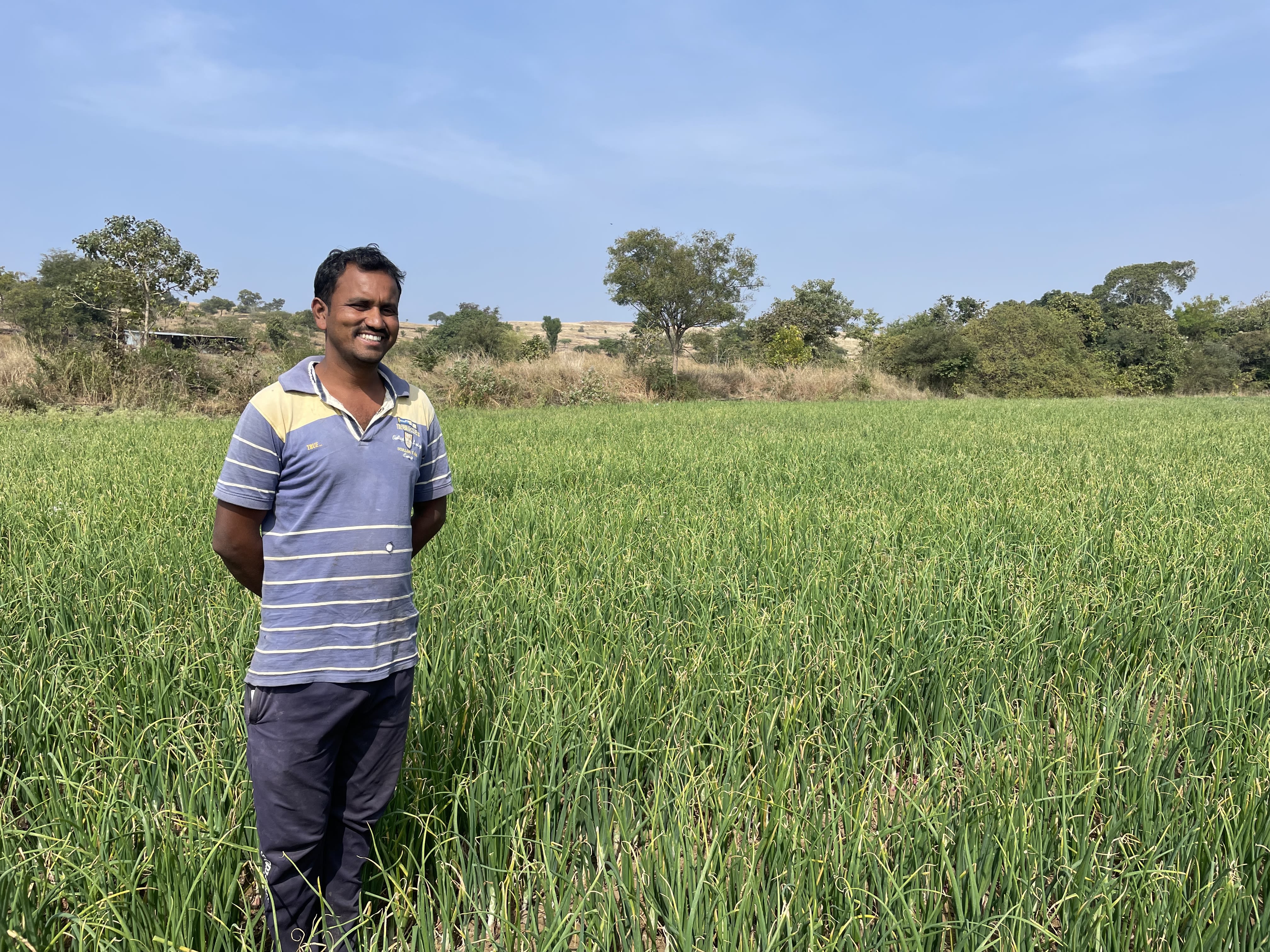Not A Teary Tale
How Organic Onion Farming Helped This Farmer Cultivate Quality Produce
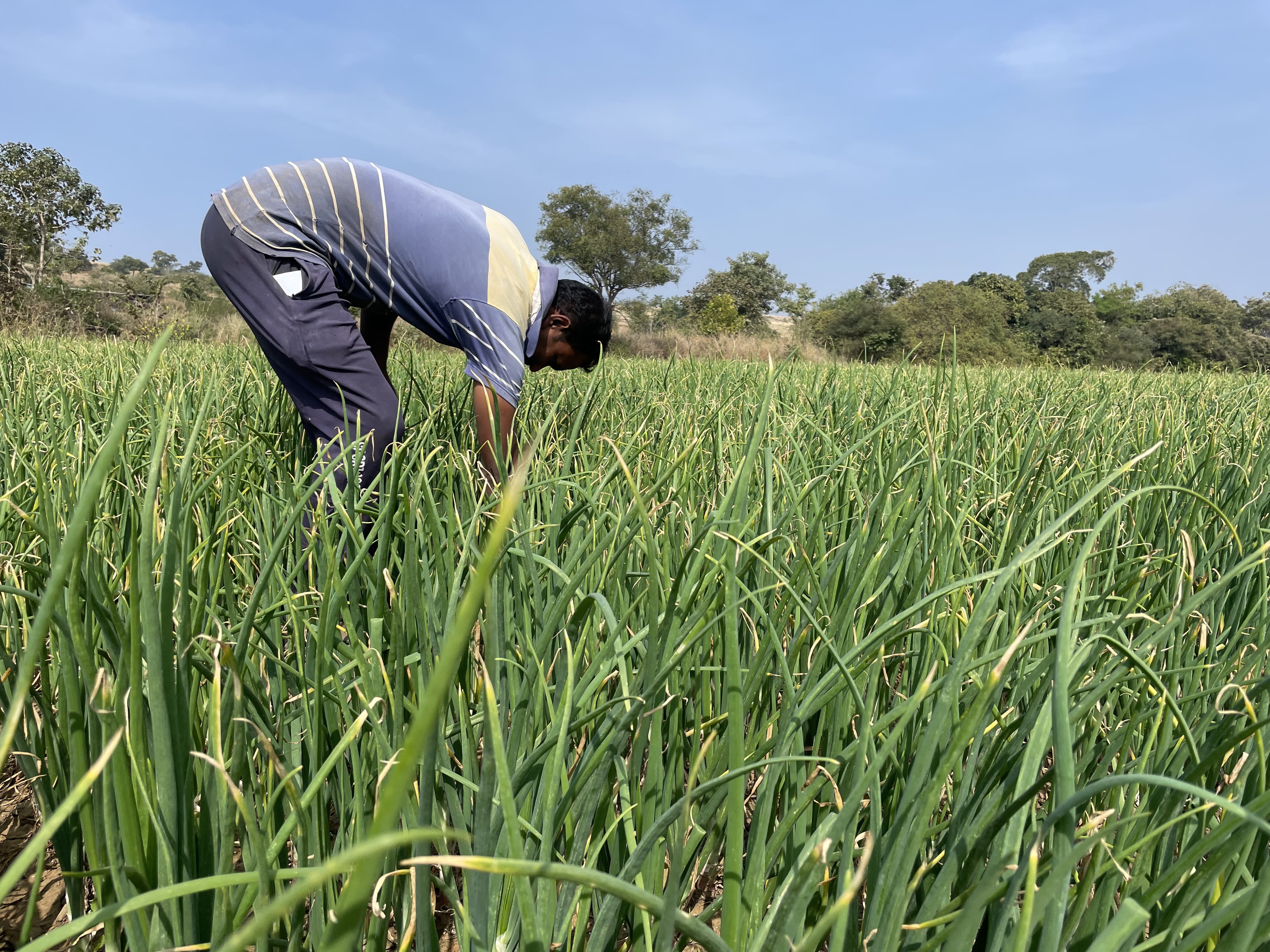
With the arrival of the rabi (winter sowing) season, Adinath Manik Thombare, a farmer from Deulgaon Ghat in Beed gets busy sowing onions on his farm. He says he is relieved growing onions, given that only a few years ago, agriculture was largely unprofitable to pursue in his village due to unavailability of water.
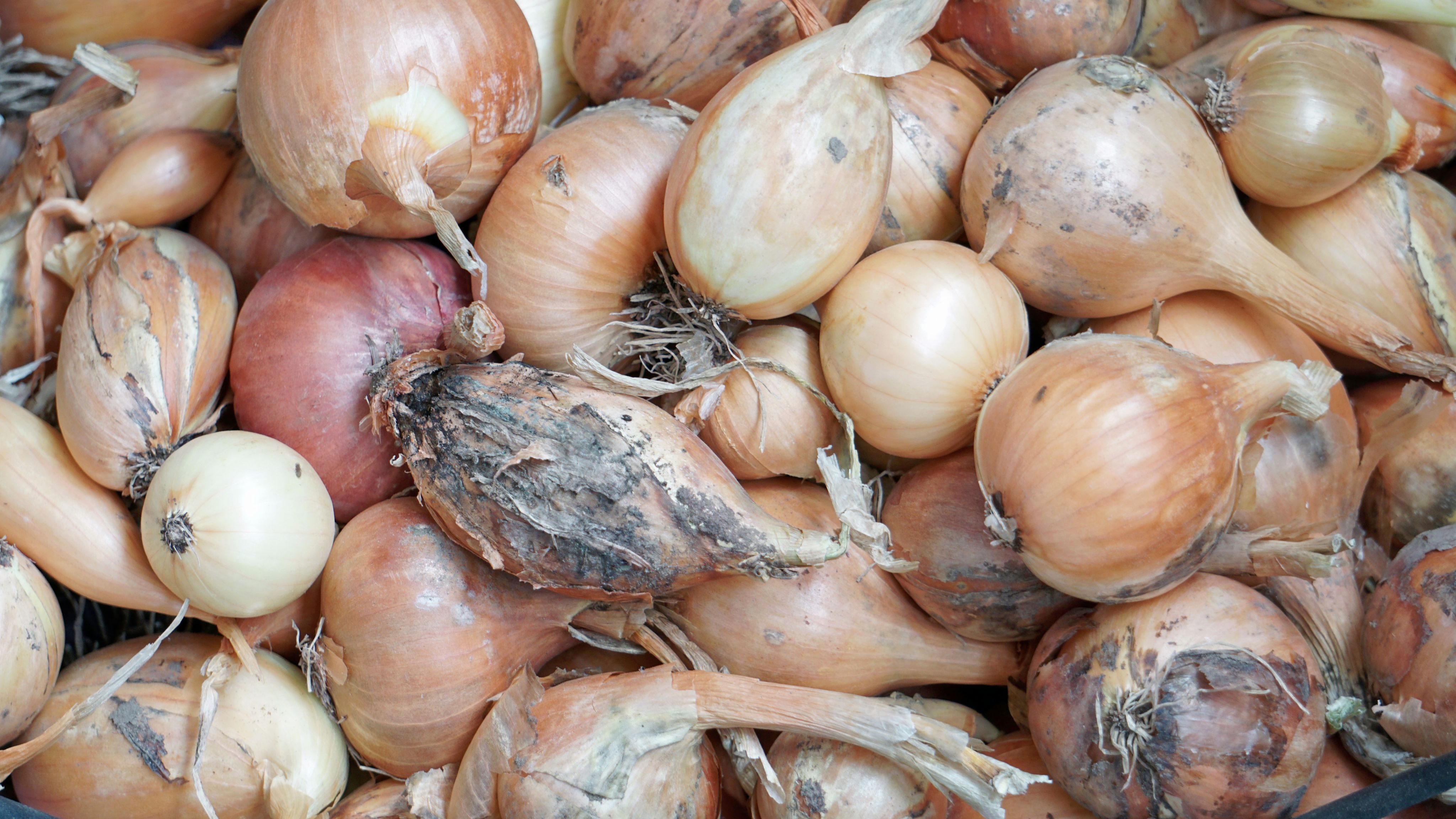
Photo by Dmytro Glazunov on Unsplash
Photo by Dmytro Glazunov on Unsplash
“Paani hi nai tha (there was no water)” he says, looking over his 4 acre farm that’s irrigated by a nallah dug by his family a few years ago. While availability of water enabled Adinath to pursue profitable agriculture, the last few years saw his profit margins decline due to fresh challenges like climate change and market volatility.
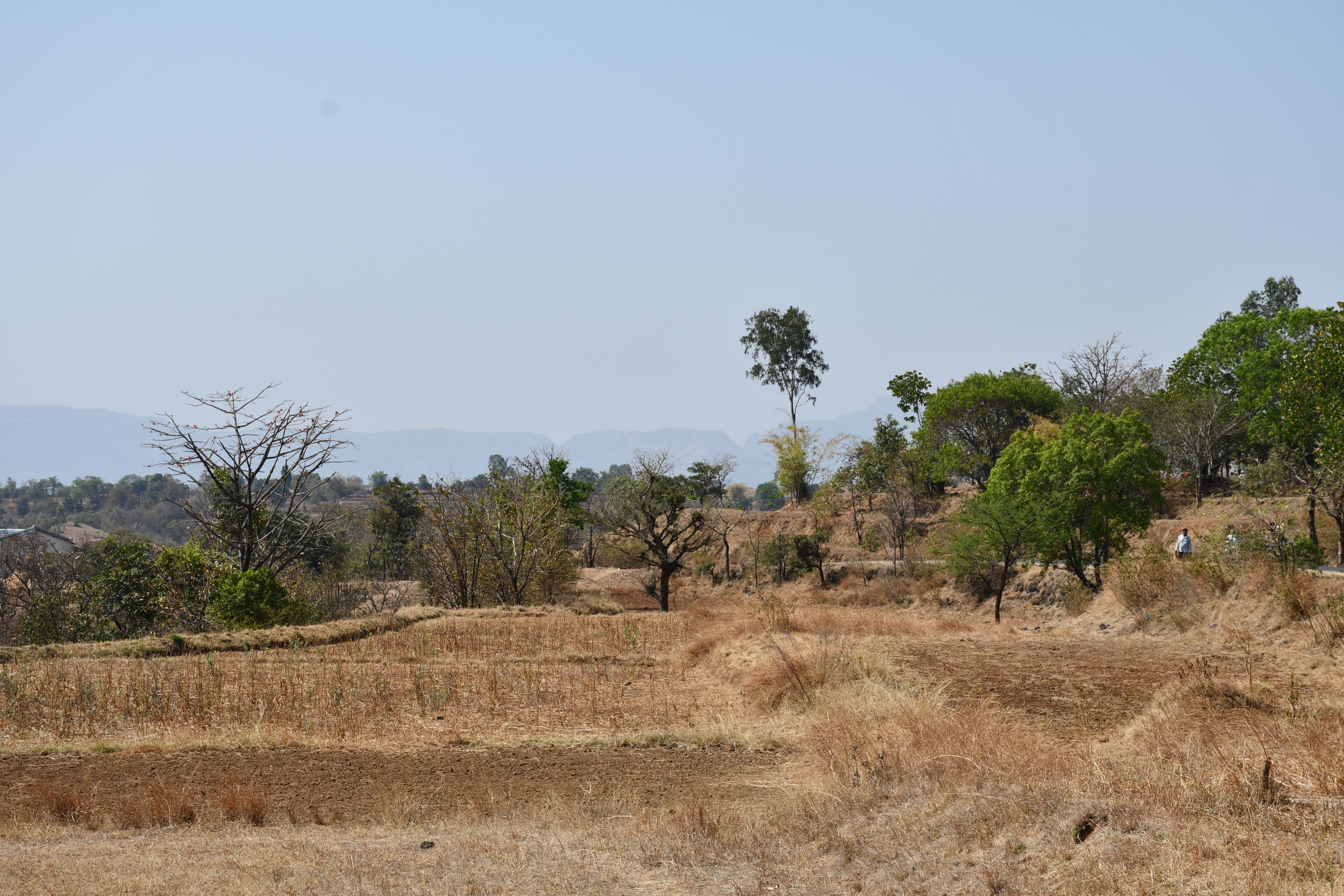
“Onion is more profitable than growing millets, but it is also very vulnerable to pest attacks and diseases. During pest attacks on onion crop, I used to spray chemical fertilisers," he says
The sudden weather change, in particular, makes the crop very vulnerable to fungus attacks. The leaves turn yellow, and all this impacts crop productivity. It adds to my cost, and also affects the soil,” he adds.
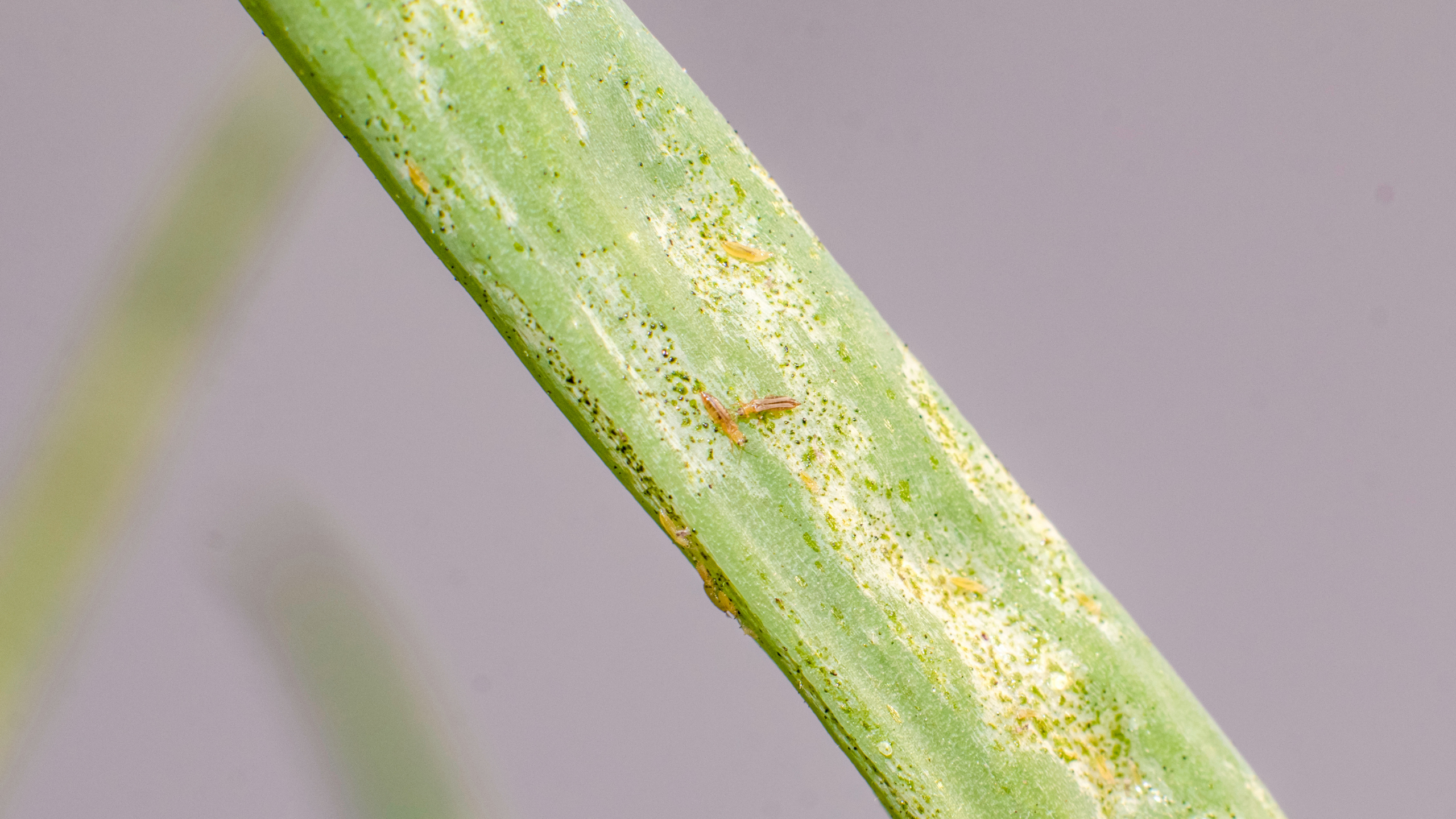
In need of solutions, Adinath started participating in training and exposure visits conducted by WOTR, under Axis Bank Foundation’s ‘Sustainable Livelihood Programme’. He, along with other farmers, were keen on learning about best practices for onion cultivation.
“To do this, we created a small plot on his farm, where we did a demonstration of the best crop management practices farmers can do to grow onions,” Nilesh Thombre, the para agronomist from Deulgaon Ghat, tells us.
To reduce input costs, and encourage use of organic farming methods, farmers also received bio-pesticide kits for onion cultivation - a unique package of natural, biologically occurring compounds that help control various agricultural pests.
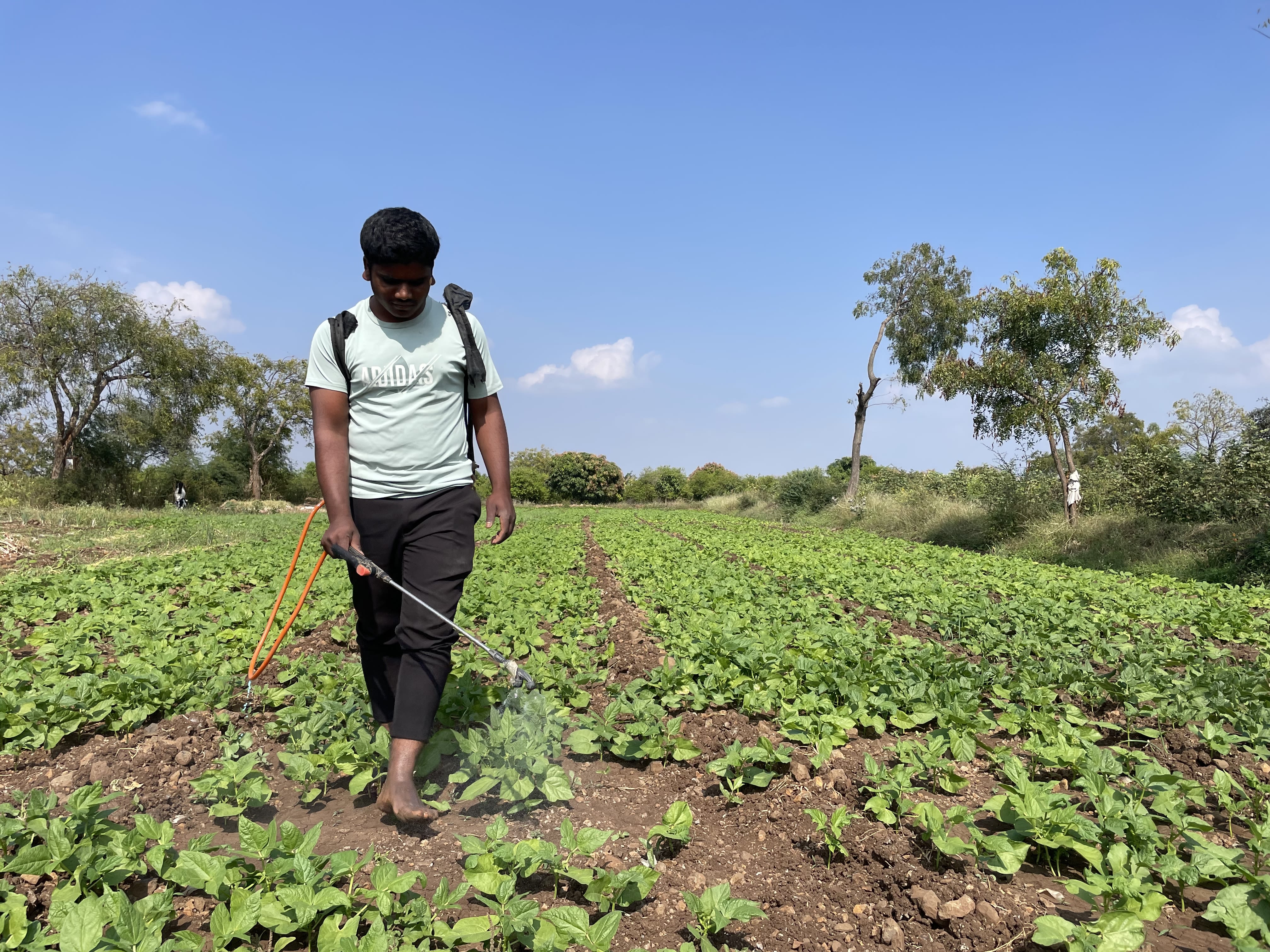
“The package consisted of Trichoderma (a bio-fungicide), Beauveria bassiana (a biological insecticide), neem extract and certain micro- nutrients. We also provided guidance to the farmers on application of these products and directions for using them through the crop cycle. It is not enough to provide the bio-pesticides. It is essential they are used the right way at the right time,” he says.
“We asked them to use nimrod powder to control fungus attacks. Farmers were also given pheromone and sticky traps that monitor and help catch pests like whiteflies, aphids, leaf miners, and fungus gnats,” he adds.
In December 2022, Adinath decided to undertake onion cultivation using soil management inputs and organic cropping methods prescribed in the farmer field school on 3 acres of his land. The intervention yielded visible results.
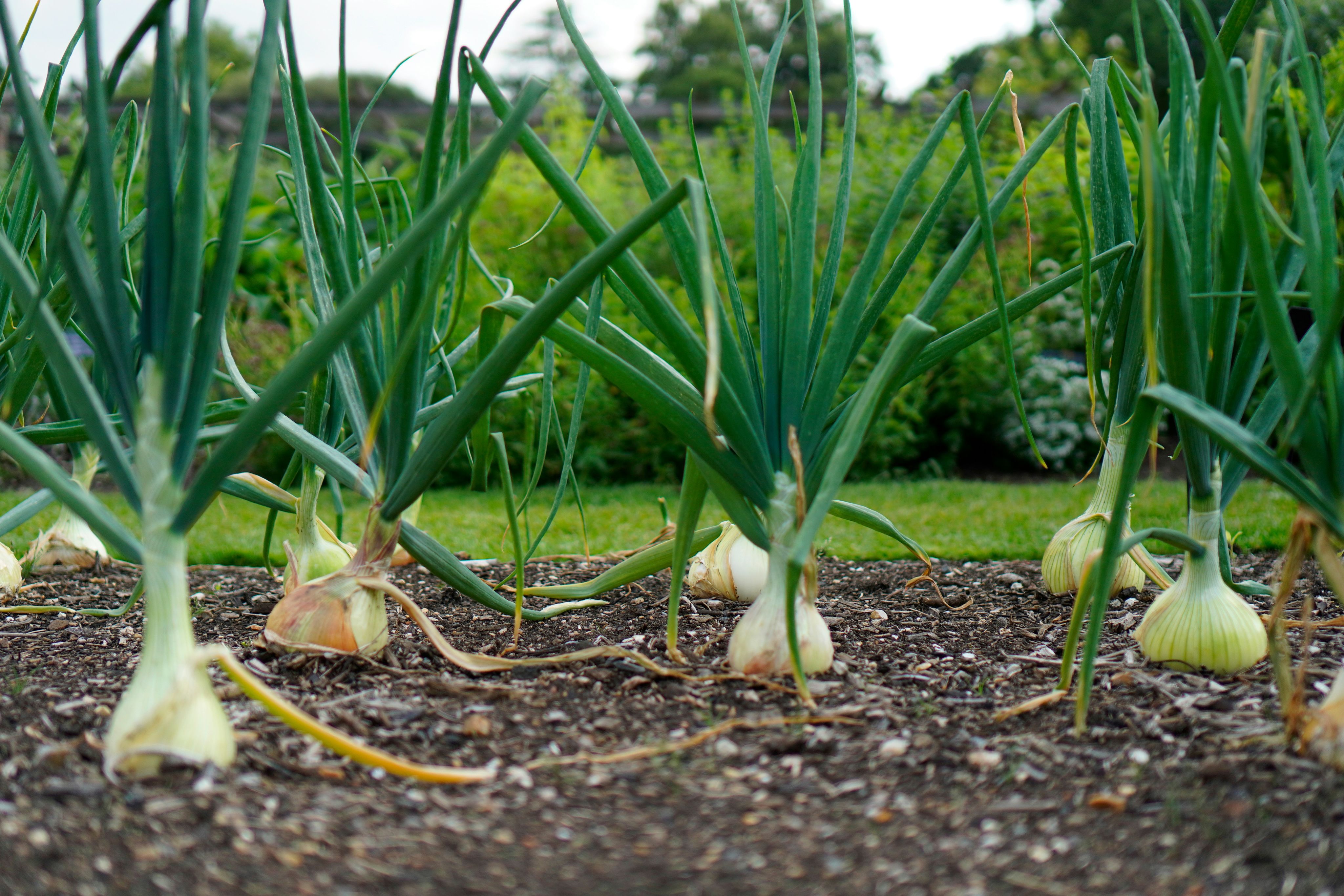
“The size of the onions were bigger, and that helped me get a good price for them in the market. They also had a better shelf life, and that enabled me to store them, and sell them when I wanted to,” he says.
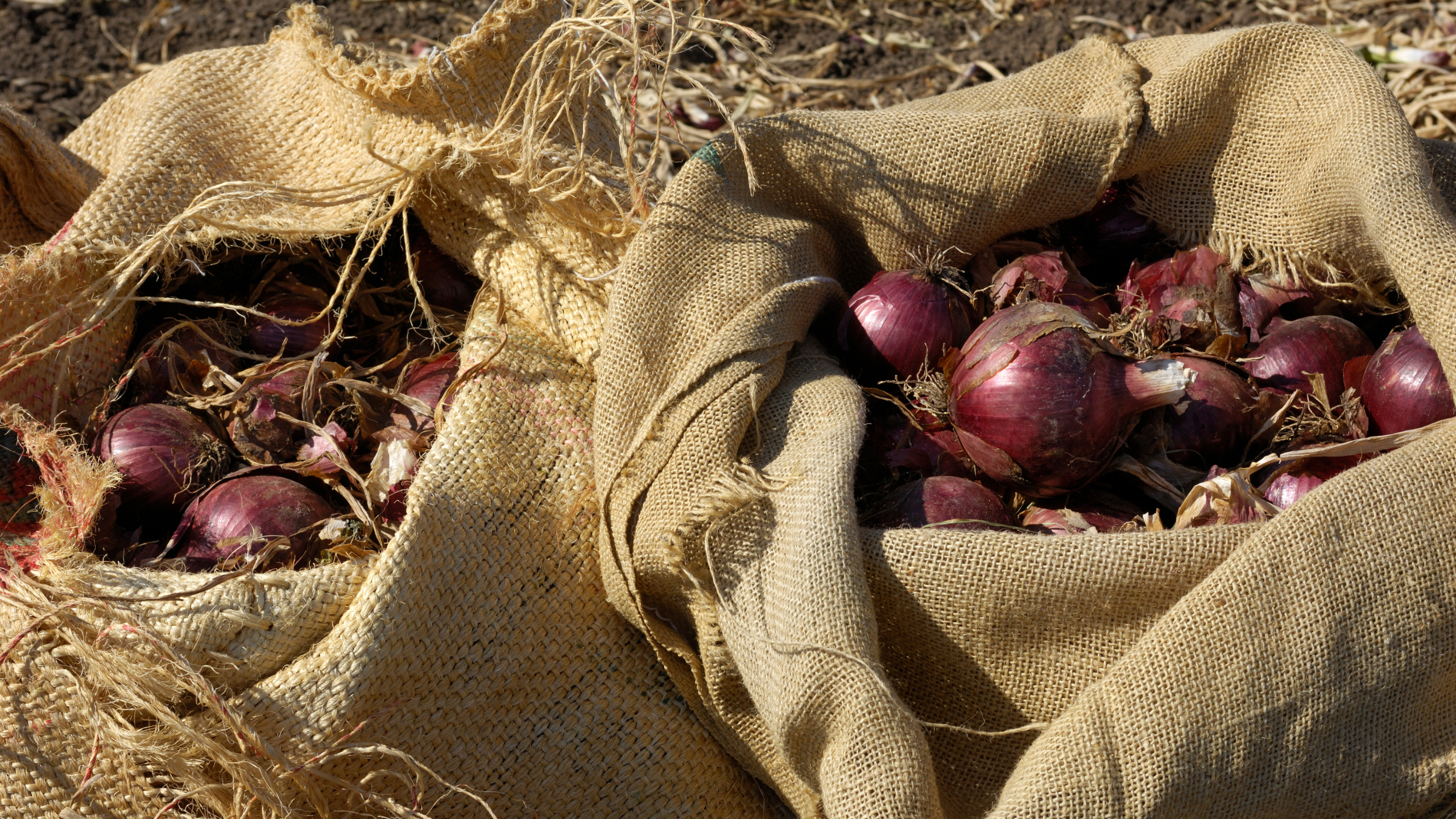
Image by GomezDavid from Getty Images Signature
Image by GomezDavid from Getty Images Signature
There was also a marked improvement in the yield. “Earlier, I would receive a yield of up to 150 quintals from 1 hectare of land, but in 2022, the same area yielded me 300 quintals . My profit jumped from Rs 30,000 to Rs 50,000, and input costs reduced by 35-40 percent,” he says.
Encouraged by the results, he used the same agro-friendly methods to grow onions on his entire farmland in the next season, and earned Rs 80,000 as profit.
“I had always thought that organic translates to less yield, but my field experience has taught me the opposite. Not only is the yield better, but my crop is healthier too,” he says.
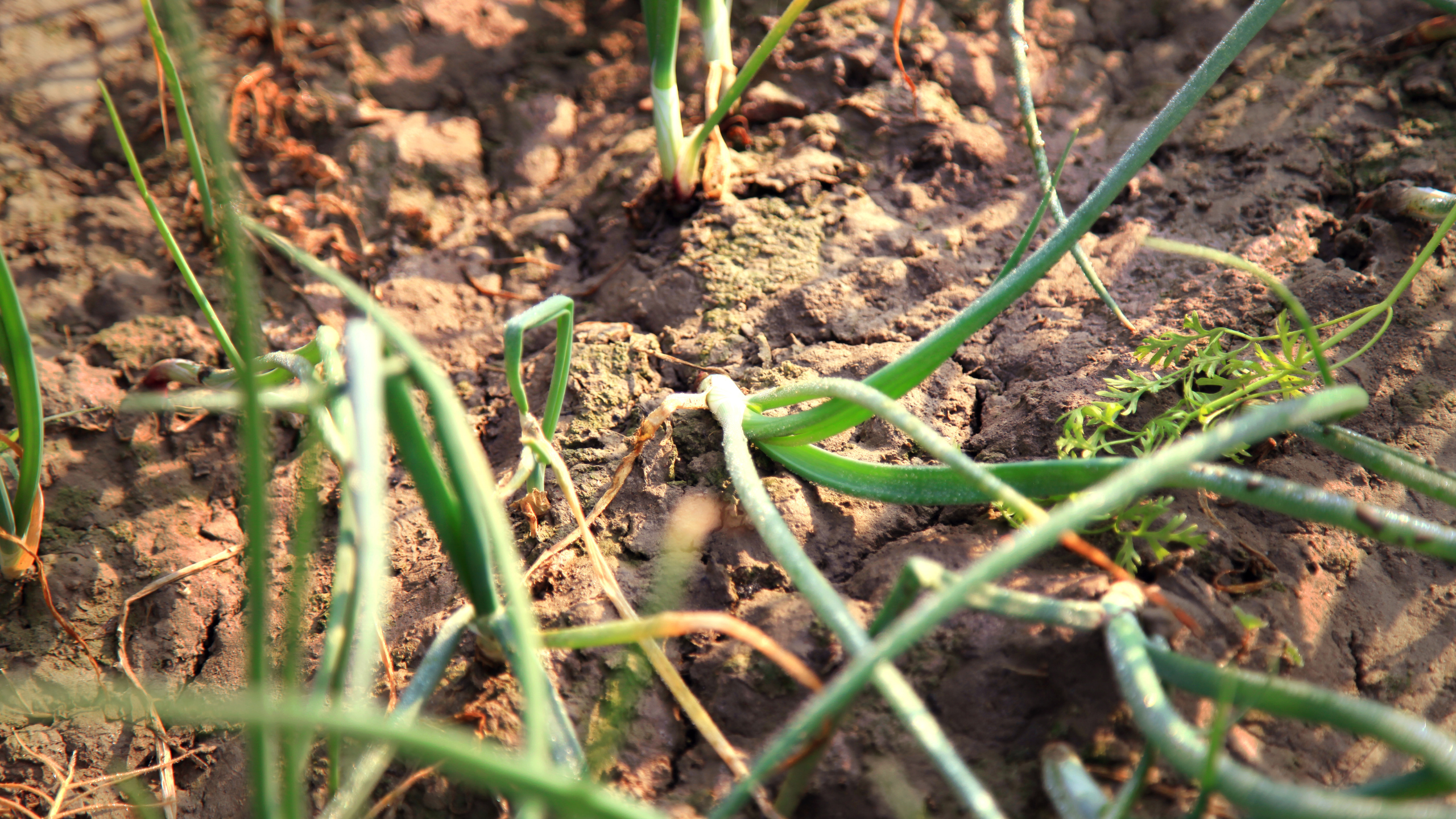
Image by rvimages from Getty Images Signature
Image by rvimages from Getty Images Signature
To make his point, he points to his brother’s onion farm, located a few steps away from his plot, separated by a barbed wire. The leaves in Adinath’s onion plantation are not only denser and greener, they are also taller, with the plant having visibly larger bulbs. The crop size in his brother’s onion field dwarfs in comparison, and has patches of yellow, wilting leaves in between the green.
“He is using only chemical fertilisers, and I only do organic farming for onions. This is the difference,” he beams proudly, showing off his crop.
He plans on reinvesting the profits earned from onion cultivation into starting his own orange and custard apple plantations.
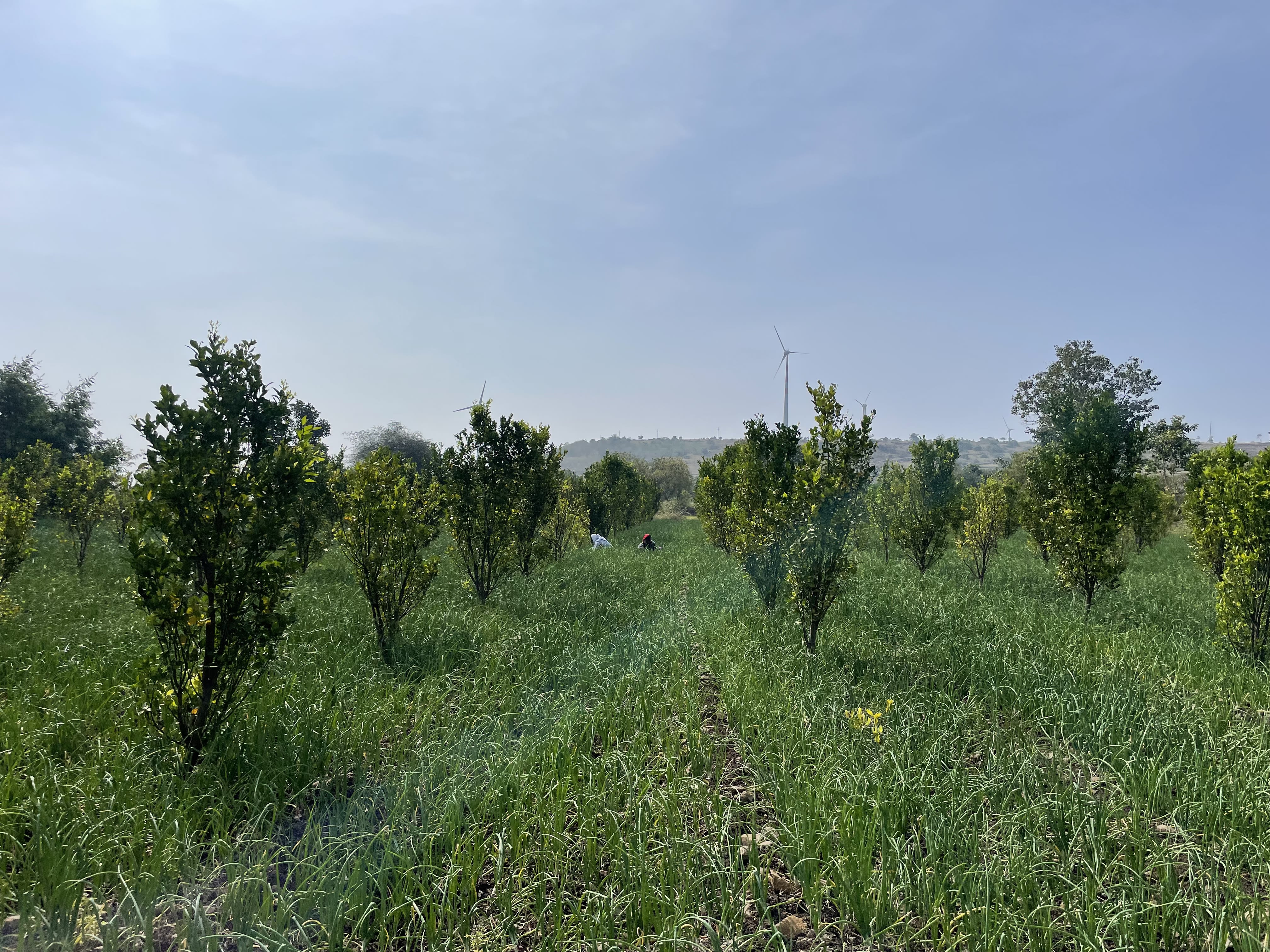
“That will also be organic,” he says. “Vishukt kheti se vishmukt kheti ki taraf jaana hai. (Ismein) kasht kam hai, aur profit zyaada (I want to go from chemical farming to organic farming. It has less toil and more profit,” he adds.
A project supported by

To invest with WOTR for its initiatives to mobilise communities and develop sustainable livelihood oppurtunities, write to Madhavi Kadrekar at info@wotr.org.
